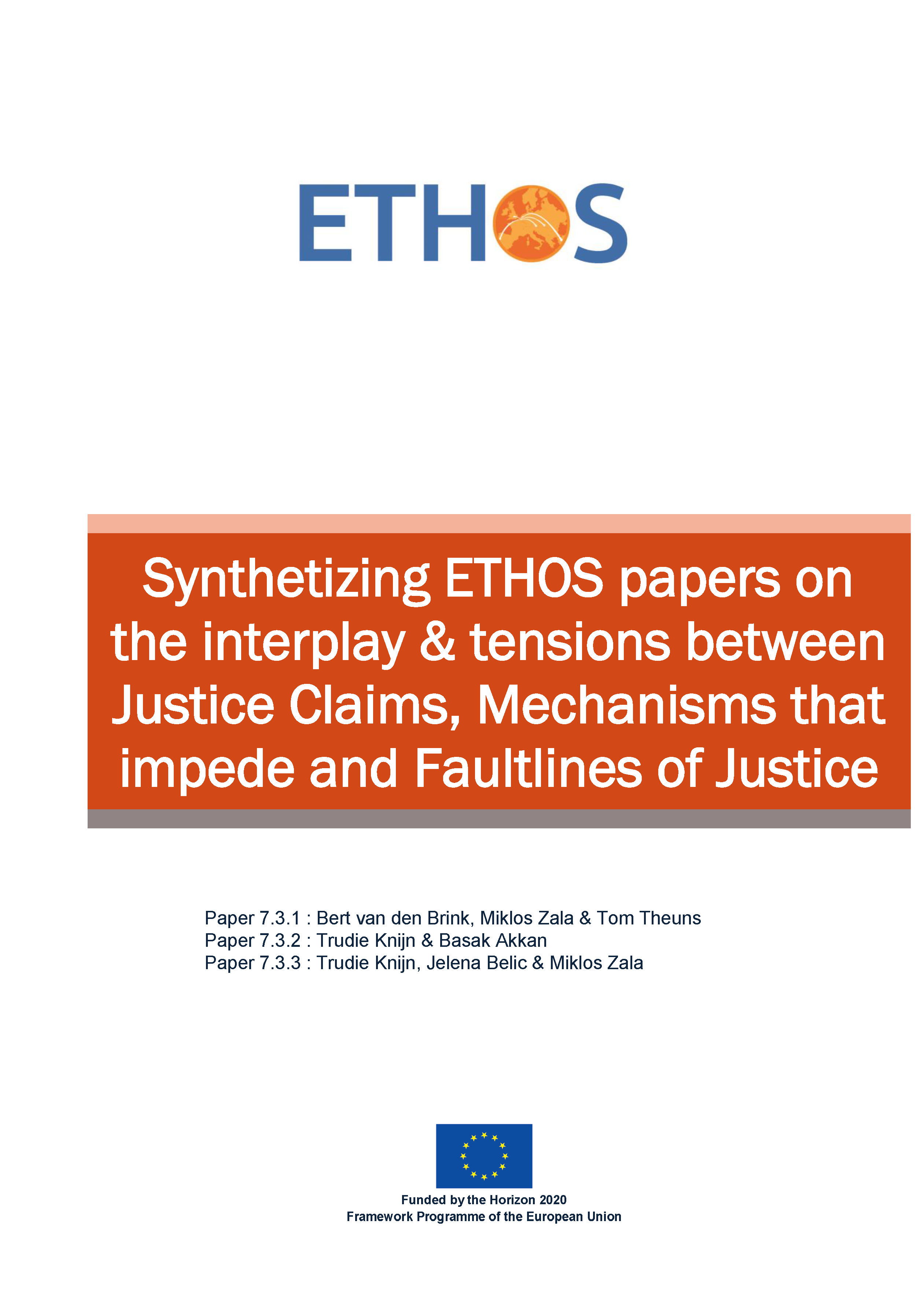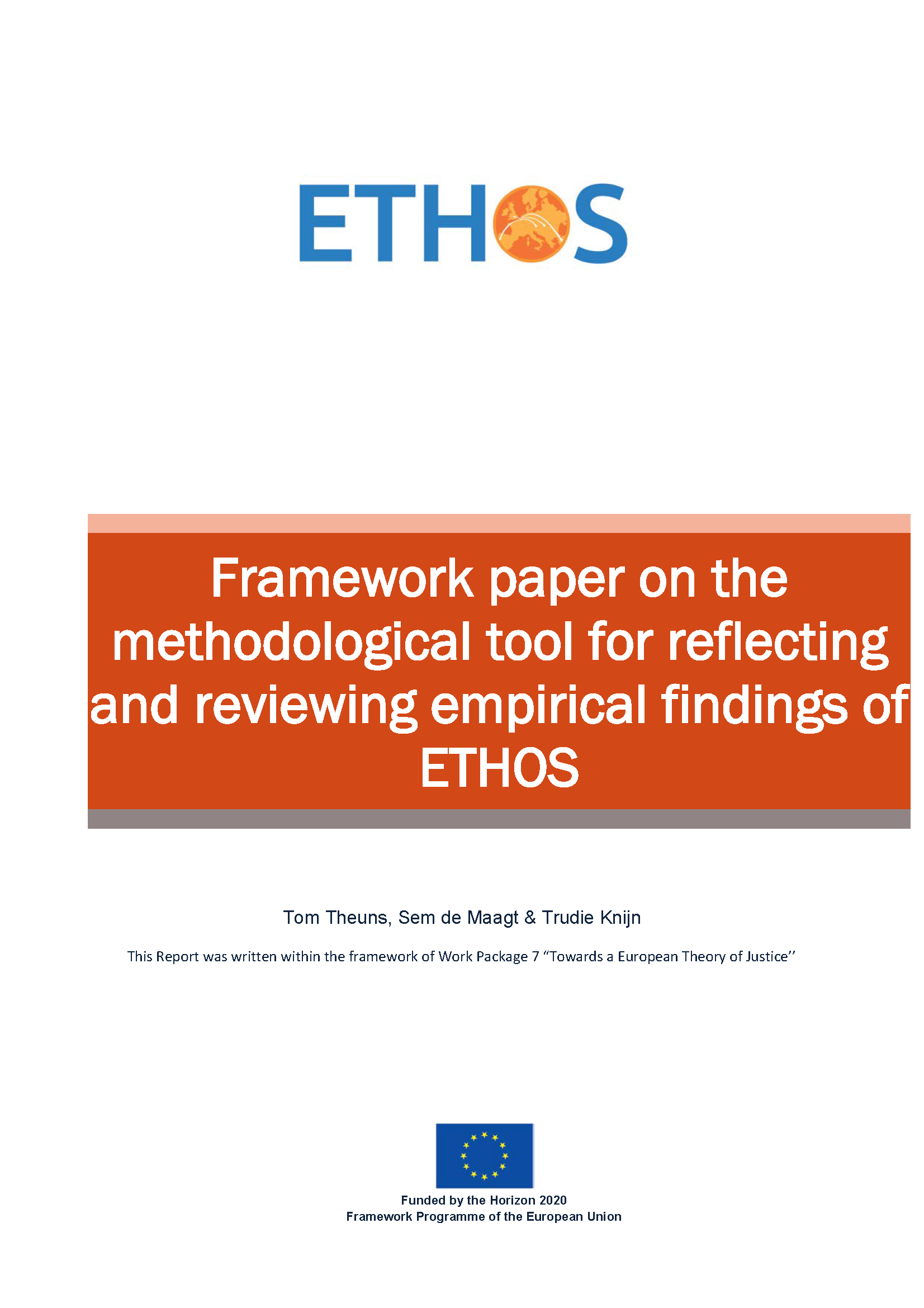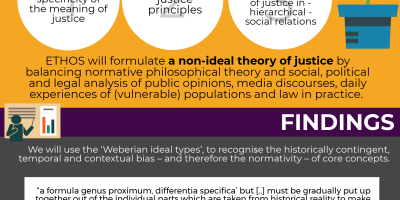Towards a European Theory of Justice (WP7)
The main objective of this part of ETHOS is to integrate the theoretical and empirical findings from all subprojects and to formulate a theory of justice and fairness that is normatively sound, reflective of European values and at the same time rests on solid empirical ground with regard to citizens' attitudes and views. The subproject provides politicians, policy makers and other stakeholders with inspiration and guidance on how to ‘do justice’ and ‘prevent injustice’. To achieve this goal, the ETHOS researchers aim to engage in a continuous process of reflection, going back and forth from the theoretical building blocks to the step by step delivered empirical findings. In developing a theory of justice, ETHOS follows the heuristic method of confronting the ideal-typical (Weberian) justice claims (that reflect distributive, recognitive and representative justice) with the ‘practices’ and ‘lived experiences’ of justice that take place in different spheres of justice.
Leading partner: UU; leading researchers: Trudie Knijn/Dorota Lepianka

This project has received funding from the European Union’s Horizon 2020 programme under grant agreement No. 727112



